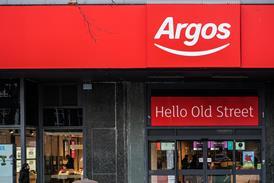It's time to get ready for British Food Fortnight - but forget discounting. Focus instead on quality, freshness and environmental soundness The public perception of British food is changing. After years of negative reports, the consumer has now recognised the values that British food represents. High quality, freshness and environmental friendliness now feature highly whenever the public is asked for its views on British food. The diverse range of quality British products covers the entire spectrum from fresh English strawberries to Welsh salt lamb and Scottish salmon. There is not a corner of the country that does not lay claim to a high quality delicacy. A recent survey of attitudes revealed that 50% of consumers are now concerned about food miles, a key advantage for home-grown over imports. Interestingly 75% of consumers now state they would buy more British food but believe retailers' purchasing policies are denying them that choice. Among the ever-growing proportion of the population over the age of 50, the demand is even greater - 54% actively seek out British food and 35% would pay more for a British alternative to imported products. The recognition that British food now rates among the best in the world is further evidenced by the increasing level of British exports. 2006 represents the highest-ever recorded level of food exports, reversing a trend of several years of decline. This has been driven by increases in export sales of traditional British products such as beef and beer. In most markets the consumers appreciate the British reputation for best practice farming methods and recognise the superb quality of traditional British fare. Recent events such as the BBC's Great British Menu series have re-established the quality reputation of the highest levels of British cuisine. This raising of the bar in terms of quality is reflected in a renewed interest in all things British among the country's top restaurants and chefs and this enthusiasm is clearly influencing buying decisions among UK consumers. British Food Fortnight presents retailers with a vital point of focus to capitalise on these emerging trends. It also allows everyone to extend and maximise the existing retailer initiatives on local sourcing under a well-publicised and relevant umbrella event. The timing of the event - 22 September to 7 October - fits superbly between the end of summer and Hallowe'en, providing a sales focus point during an otherwise quiet period. The promotion of British food during the British Food Fortnight in 2006 proved a catalyst to drive significant sales improvements among smaller retailers. Sales have grown by up to 34% and more than 80% of the products introduced during British Food Fortnight have been retained. The methods adopted by these stores provide a framework that works equally well in the multiples. In-store tastings and supplier support have all proved effective in engaging consumers. The promotion of the key messages about quality, freshness and environmental soundness is the best way forward. It is not about discounting, which simply devalues the "British" brand and erodes everyone's margin, but about the products' values. British Food Fortnight provides the retailer with a fantastic opportunity to build on current initiatives with the support of a nationally recognised and supported event. It would be foolish not to. Campaigns like British food Fortnight work. n Tim Kershaw, MD, Libra Europe, consultancy to food supply chain
Close menu
- Home
- Retail & Wholesale
-
Products & Suppliers
- Back to parent navigation item
- Products & Suppliers
-
Product Categories:
- Back to parent navigation item
- Product Categories:
- Alcoholic drinks
- Bakery
- Cereals & breakfast
- Cheese
- Chicken & poultry
- Chocolate
- Confectionery
- Crisps, nuts & snacks
- Dairy
- Fish
- Fresh produce
- Frozen
- Household
- Meat
- Own Label
- Sauces & condiments
- Seasonal
- Soft drinks
- Vaping
- Vegan & plant-based
- World foods
- Suppliers
- People
- Reports & Data
-
Topics A-Z
- Back to parent navigation item
- Topics A-Z
-
Popular topics:
- Back to parent navigation item
- Popular topics:
- Cost of living crisis
- Crime
- Deposit Return Schemes
- Finance
- Government & Regulation
- Health
- Inflation
- Loyalty
- Marketing
- Mergers & Acquisitions
- New Product Development
- Sourcing
- Supply chain
- Sustainability & environment
- Technology
- Ultra Processed Foods
- Vaping
- A-Z all topics
- Content by type:
- Events
- Ask iA (beta)
- Subscribe now
Sign in to comment on this article
Not logged in before? Register for FREE guest access today.
You will be able to:
- Read more stories
- Receive daily newsletters
- Comment on stories
Advert













No comments yet